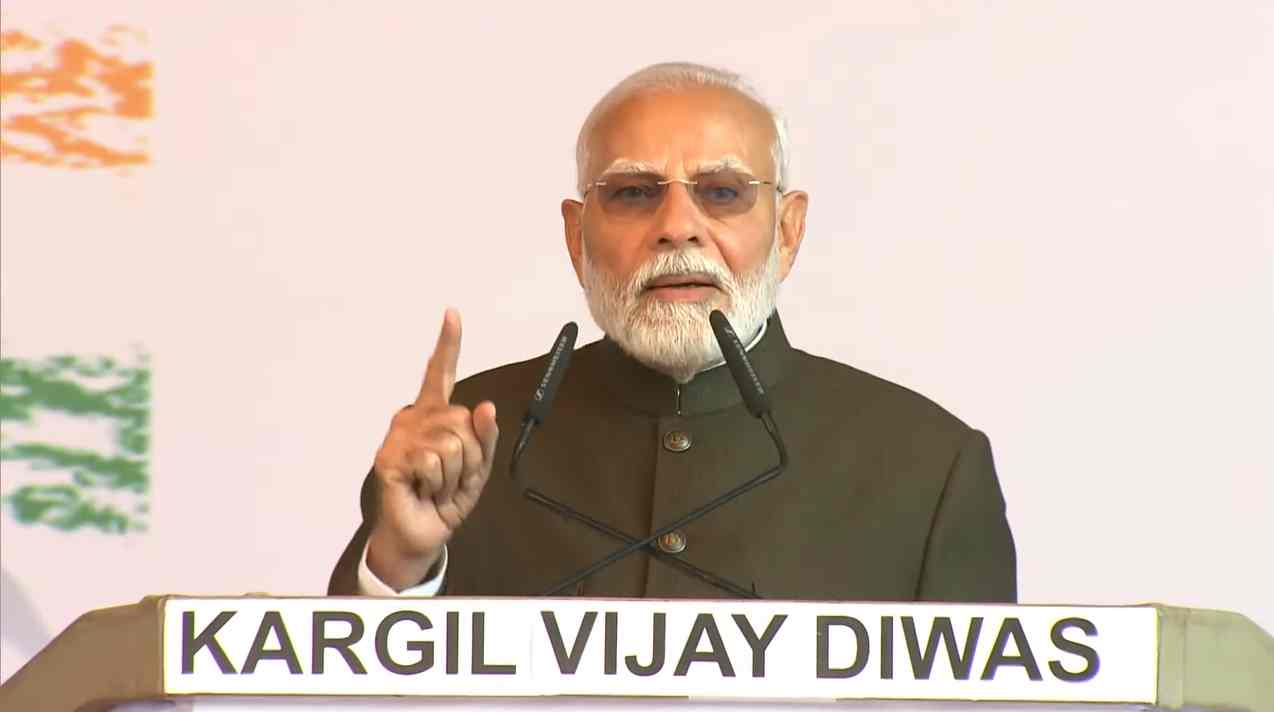On the 25th Kargil Vijay Diwas, Prime Minister Narendra Modi focused on the transformative changes in Ladakh and Jammu & Kashmir over the past five years, following the abrogation of Article 370. Speaking from Ladakh, Modi outlined the substantial progress in these regions, emphasizing their development and growing significance on the global stage.
Prime Minister Modi reflected on how the removal of Article 370 has catalyzed positive changes, bringing significant infrastructure development and social progress. He highlighted that Ladakh and Jammu & Kashmir are now notable venues for international events, including the recent G-20 summit, underscoring their rising prominence in global affairs.
The Prime Minister praised the region’s advancements in tourism and infrastructure, citing the recent reopening of cinemas in Kashmir after decades and the successful organization of traditional events such as the Tazia procession in Srinagar. These developments, Modi noted, symbolize a broader move towards peace and cultural revival in the region.
Modi emphasized that the government’s efforts have been directed at enhancing the quality of life for the residents, improving connectivity, and fostering economic growth. He stressed that the progress observed is a testament to the government’s commitment to ensuring that every citizen benefits from development initiatives.
“The progress in Ladakh and Jammu & Kashmir since the abrogation of Article 370 is a reflection of India’s determination to overcome challenges and drive development,” Modi stated. “We are committed to continuing this trajectory, ensuring that these regions thrive and contribute to the nation’s growth.”
The Prime Minister’s address not only celebrated the advancements made but also reinforced the government’s ongoing commitment to supporting and developing Ladakh and Jammu & Kashmir, aiming for a future marked by stability, prosperity, and integration into the national fabric.



